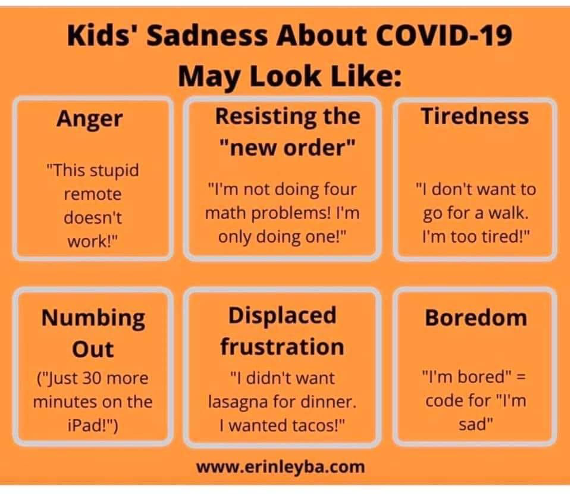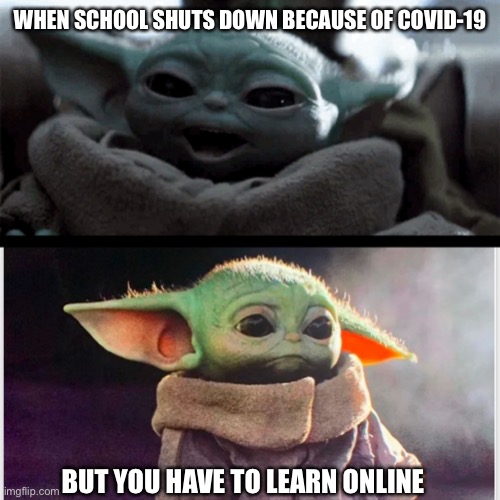MARK YOUR CALENDARS!
Ongoing EventsNCTE Member Gatherings
A series of member-exclusive online gatherings. Each event "fosters conversation, brings new ideas, and builds relationships with your fellow NCTE members during the isolating time of COVID-19."
Registration and information link. NCTE Learning on Demand Web Seminars
“Learn from leaders in our field from the comfort of your couch. On Demand Web seminar recordings include all audio, video, chat, and discussion from past live events.”
Information link. ALA Online Learning"ALA eLearning--webinars, courses, workshops, e-forums and more--covers library-related fundamentals, advances, trends, and hot topics for all types of libraries. Find the online options that can best keep you and your colleagues and staff current."
Registration and information link. ILA Digital Events
“ILA Digital Events range from high-quality professional development opportunities to engaging discussions on timely topics. These events also give you a chance to become active within the ILA community, provide access to high-quality online resources, and connect with like-minded educators at a time and place that's convenient for you.” Registration and information link. BY LAUREN AIMONETTE LIANG & XENIA HADJIOANNOU As the days of August are marching on and the beginning of the 2020-21 school year is approaching, it is becoming increasingly clear that this will be another challenging year for students and educators of all levels. SARS-CoV-2, the virus that causes COVID-19, is still looming large in our daily lives and our plans for working and learning with our students. In the absence of firm solutions for treatment and inoculation from the virus, and in the context of growing numbers of infections across the United States, schools are faced with complex and challenging decisions about how to pursue their mission in safe and academically robust ways. Our hope and intention here at the CLA Blog is to offer resources and support to educators as they plan for what is sure to be an extraordinary year of teaching and learning. We aspire to offer helpful ideas for sharing children’s literature with students through various instructional modes, as well as continue to maintain a focus on amplifying diverse voices, highlighting literary works representing diverse perspectives, and supporting an antiracist social justice agenda. We are grateful to various CLA groups and individual CLA members for volunteering to contribute posts to the CLA Blog over the coming weeks. New posts will be published every Tuesday. We are delighted to announce that in Fall 2020 the blog will feature:
Our thoughts are with you as you expertly handle the many new preparations, alongside frequent and often abrupt changes, to plans for this fall in your classrooms. We value the outstanding work that you do, and hope that you are able to stay safe during this challenging time. Lauren Aimonette Liang is an associate professor at the University of Utah and the current president of CLA. Xenia Hadjioannou is an associate professor at Penn State's Harrisburg campus and the webmaster of the CLA website. BY ANGELA M. WISEMAN
COVID-19 has created stressful situations for many adults - we may be concerned about many issues, including financial issues/job security, trying to meet professional obligations, and staying healthy. This is often magnified and multiplied with the children in our lives. Many of us are mentoring, supervising, teaching, caring, parenting and communicating with children in new ways due to the quarantine. These children, too, are reacting to this new situation and changes, many with big feelings of sadness and anxiety. The helpful graphic below* provides important insight about what we may see with children. When we understand that children’s behaviors may look different, we can use this information to support them.
In this blogpost, I want to start by addressing some of the anxiety, stress, and trauma that children might be facing during COVID-19. In a second blogpost on Thursday, April 30th, I will share some books that my colleagues and I have found helpful in talking with adults and children about trauma in hopes that these books can start facilitating conversations about feelings, fears, hopes, and dreams.
To understand issues facing children, I have thought about my own experience as a parent and also informally polled people using social media to learn more about what children were experiencing through the eyes of adults, guardians, family and friends. While this does not represent a systematic investigation and relies heavily on personal experiences (I am the mother of three boys, involved in family support groups and have a large extended family), I thought it would be helpful to understand the main concerns of children as perceived by the adults in their lives.
Missing friends - A prevalent concern is that children miss their friends. Adults have shared that many children missed being together with their friends and found it unfulfilling to engage in zoom, FaceTime, or other virtual methods of connecting. While it seems that older children spend a lot of time connecting through electronic means such as multiplayer videogames, texts and conferencing (and I can confirm this as a parent of teenagers!), younger children find it frustrating and wish they could see the person face to face. In addition, even though older children might be used to using technology to keep in touch, many high school children are incredibly disappointed to miss out on milestone events, such as prom, music concerts, sports events, or graduation.
Missing family - In addition to missing friends, many children miss their family. Families may find themselves separated from each other for many reasons, particularly if one family member is an essential worker. One mother shared that “my eight year old is staying with his bio dad/my ex-husband during the quarantine because my husband (his stepdad) is a nurse. He has been missing us terribly and we miss him so much, too!” One caring adult shared that she put together a care package for a child in their life with individual notes for them to open each day. They stated that “I hope this will let him know I’m thinking about him all the time!” Missing Routines and Activities - Children miss their regular routines and activities that they do outside of school that have been shut down indefinitely, which could include sports and other activities they do with friends and on teams. One parent told me that, “My oldest son is a competitive rock climber, and he hasn’t been in the gym in over a month and really misses that physical outlet of climbing. He’s quite literally climbing the walls in this house.”
Many adults shared how difficult it is to transition to online schooling - both for children and themselves. There are countless memes that reflect these feelings, for example:
Many adults are sharing how challenging it is to help with school requirements, particularly if they have additional work responsibilities, technology challenges, or difficulties engaging with schools. As with their children, they may not be aware of how the change of routines and activities affect their lives or even have the bandwidth to support in ways they would like. As a result, caregivers, teachers, tutors, and parents feel additional stress because they are currently caring for or supporting children in various ways they had not anticipated prior to the pandemic.
Fear of Illness - A very significant fear and anxiety is getting ill. They might be scared that they will get sick, but they also worry about loved ones. I have friends and family who have been affected by COVID-19, experiencing the illness. While no one I know has died from COVID-19, I have family who has suffered from it and friends who have experienced loss. Many children worry about their own family members who are older, immune-suppressed or compromised, who are at higher risk for contracting the virus.
General feelings of anxiety - Finally, many children are sharing general feelings of anxiety that are not necessarily articulated to specific concerns. While it may be hard to pinpoint what the concerns are, these behaviors might show as sleeplessness, acting out, or tiredness. Children might not come out and say, "I'm worried about this!"
For the next blog post which will come out on Thursday April 30, I will share children’s picturebooks and resources that might help support children who are affected by trauma, anxiety and stress from the pandemic. Stay tuned!
April 30, 2020 Update: Part II of post |
Authors:
|
CLA
About CLA
|
Journal of Children's Literature
Write for JCL
|
ResourcesCLA-sponsored NCTE Position Statements
|
Members-Only Content
CLA Video Library
|
© COPYRIGHT 2018.
ALL RIGHTS RESERVED |



 RSS Feed
RSS Feed